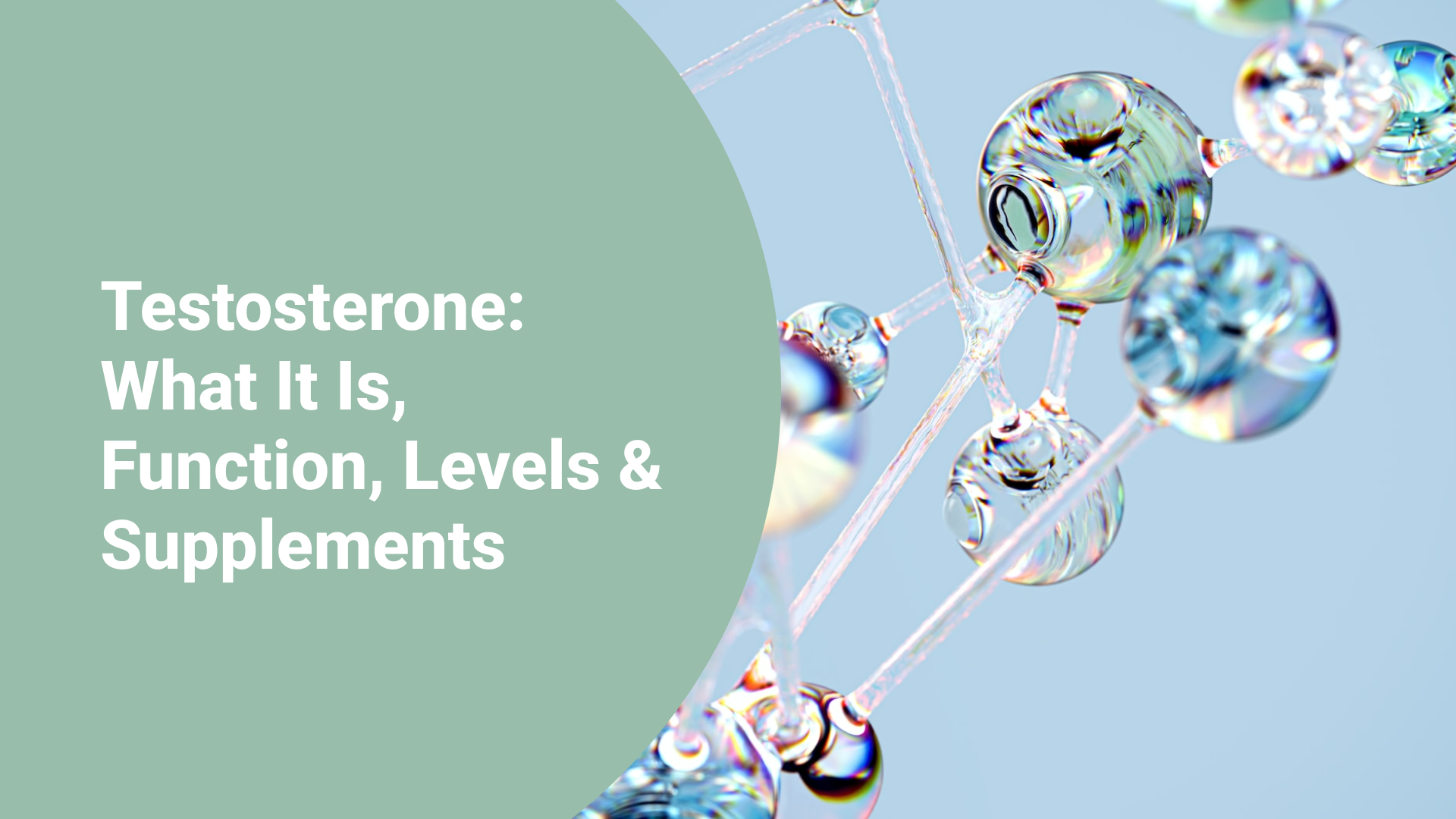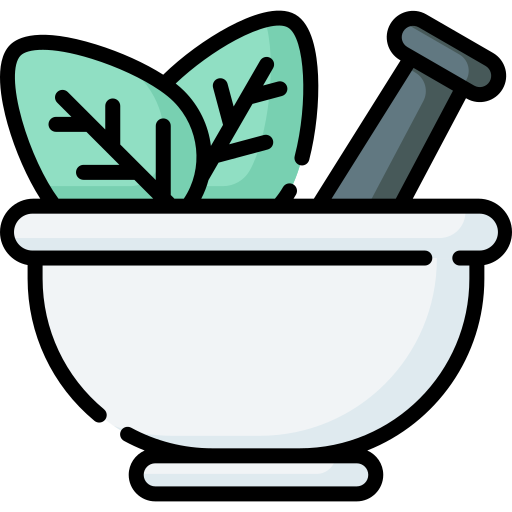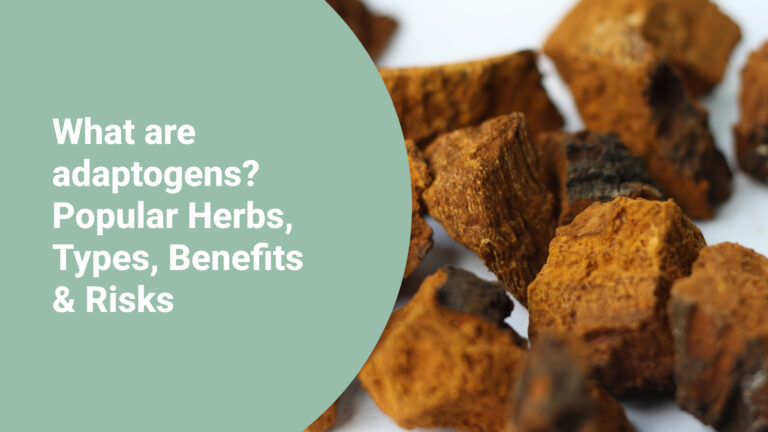Testosterone: What It Is, Function, Levels & Supplements

Ashwagandha Expert is a project that offers the most accurate information in an accessible, understandable and applicable way so that readers can make the best...Read more
✅ Evidence-Based
⚙️ Methodology
From the author:
What is Testosterone?
Testosterone, a hormone found in humans and animals, is produced by the testes in men, the ovaries in women (to a lesser extent), and the adrenal glands in both sexes. It’s commonly known as the sex hormone.
The adrenal glands produce a hormone named dehydroepiandrosterone (DHEA), which the body turns into testosterone and estrogen.
Testosterone is the key hormone that triggers the growth of male traits.
Leydig cells in the testicles synthesize testosterone from cholesterol in response to luteinizing hormone (LH) from the pituitary gland. Once in the bloodstream, testosterone plays a vital role in male sexual development. It stimulates the growth of primary and secondary sexual organs, as well as the development of body hair and muscle mass.
Imbalances in testosterone levels can lead to health issues.
What does Testosterone do?
Testosterone is crucial throughout our lives, especially in fetal development, during adolescence in boys, and into adulthood.
Our gender is determined in the womb. In males, testosterone production starts in the testicles during pregnancy, usually around the seventh or eighth week of fetal development.
As the primary androgen, testosterone plays a vital role in male puberty, marking the transition to sexual maturity and reproductive capability.
In puberty, testosterone drives significant physical changes in men, such as:
- Enlargement of the penis and testicles
- Development of facial, pubic, and body hair
- Deepening of the voice
- Strengthening of muscles and bones
- Increase in height
Post-puberty, testosterone continues to regulate essential body functions, including:
- Red blood cell production
- Bone density
- Fat distribution
- Muscle strength and mass
- Growth of facial and body hair
- Sperm production
- Sex drive
Females naturally produce testosterone in their ovaries and adrenal glands. This hormone plays a crucial role in women’s well-being, contributing to:
- Building stronger bones
- Controlling fat distribution
- Enhancing muscle strength and mass
- Promoting red blood cell production
- Managing fertility
- Regulating energy levels
Testicle and penis development
Testosterone is a vital sex hormone influencing various bodily processes, such as penis development, particularly in biological males during puberty.
During pre-puberty and puberty, testosterone actively contributes to penis growth, enhancing both length and width. However, it’s essential to note that after completing puberty, elevating testosterone levels no longer affects penis size.
Deepening of voice
Testosterone, the primary sex hormone in men, plays a crucial role in developing distinct physical traits. Its impact on voice pitch remains a debated topic. Some studies propose that elevated testosterone levels might thicken vocal cords, resulting in a deeper tone.
However, this effect varies among individuals and may not be universal.
In a 2017 study involving seven transgender men embarking on testosterone therapy, all participants experienced significant voice deepening within the initial 6 months, with four seeing further changes after that period.
A 2018 meta-analysis revealed that while testosterone does impact voice pitch, the extent of the change may not always meet expectations.
A 2021 study from a transgender clinic in Thailand, spanning 2 years and involving 39 transgender men, reported that 72% experienced some voice deepening at 6 months, 97% at 12 months, and 100% at 24 months.
However, it’s crucial to note that not every trans man will undergo a complete voice deepening.
Facial hair and pubic hair
During puberty, testosterone influences the growth of body hair, including facial hair.
Testosterone contains a steroid called dihydrotestosterone (DHT), which controls overall hair growth. Your genetic blueprint determines the amount of DHT in your system.
While testosterone readies hair follicles for growth, it’s the activation of DHT by enzymes in the sebaceous gland that governs linear hair growth. Your skin and follicles respond to DHT effects based on genetic programming.
Men with higher DHT levels or greater sensitivity may grow beards earlier. Conversely, those less responsive to DHT might not achieve a full beard despite high levels. DHT levels, too, can be too low, causing issues for some individuals.
Women may experience increased hair growth due to higher levels of testosterone. This rise in testosterone, particularly during adolescence, may lead to hair growth in specific areas like around the nipples, upper lip, chin, and between the navel and groin.
Studies indicate that women undergoing testosterone therapy may experience a boost in hair growth if they have a deficiency in testosterone.
High levels of DHT may trigger to male pattern baldness (alopecia) in some men.
Sperm production
Sperm and testosterone are both produced in the testicles. The quality and quantity of sperm depend on the high concentration of testosterone in the testicles.
Important note:
The testicles naturally produce substantial amounts of testosterone. Some of this testosterone enters the bloodstream, offering benefits like enhanced sexual well-being, increased energy, mental clarity, improved mental health, and muscle growth. However, for sperm production, it’s the concentration of testosterone within the testicles that matters most.
For optimal sperm production, a significantly high concentration of testosterone is required within the testicles. This occurs when testosterone is naturally produced within the testicles themselves.
Low testosterone levels may lead to infertility, yet effective treatments enable numerous men with low testosterone to successfully father children.
Muscle mass
Testosterone plays a vital role in building and maintaining muscle mass in the body. After the age of 30, as men’s testosterone decreases, their muscle mass tends to decrease too.
Testosterone helps muscles recover and grow faster after exercise by boosting protein synthesis, the way muscles repair themselves. Higher testosterone levels mean improved protein synthesis, leading to faster recovery and muscle growth.
Additionally, testosterone helps in reducing gained fat mass, promoting a leaner body, which aids in weight control and boosts energy levels.
Studies indicate that testosterone therapy can be beneficial for men with low testosterone, as it has been shown to decrease fat mass and increase both muscle size and strength.
Do women have Testosterone?
Both men and women naturally produce testosterone and estrogen hormones. Women generally have 5 percent of the testosterone levels found in men.
How are Testosterone levels controlled?
The endocrine system, particularly the pituitary gland and hypothalamus in the brain, plays a key role in regulating testosterone levels. These glands release hormones that signal the testes in men and the ovaries in women to generate and release testosterone.
The hypothalamus releases gonadotropin-releasing hormone (GnRH), prompting the pituitary gland to secrete luteinizing hormone (LH). LH then travels to the gonads, stimulating the production and release of testosterone.
As testosterone levels rise in your blood, they inhibit the production of gonadotropin-releasing hormone, ensuring the maintenance of normal testosterone levels.
Irregular functioning of essential organs like the hypothalamus, pituitary gland, or ovaries can lead to abnormal testosterone levels.
What tests measure Testosterone levels?
To measure your body’s testosterone level, you can undergo different tests:
- Total testosterone blood test – usually done in the morning when levels peak.
- Follicle-stimulating hormone (FSH) blood test.
- Luteinizing hormone (LH) blood test.
What are normal Testosterone levels by age?
Testosterone levels differ between men and women, with variations based on age and gender. For men, the typical range is 300-1,000 ng/dL or 10.4-34.7 nmol/L, while adult women usually fall between 15-70 ng/dL.
Keep in mind that normal testosterone ranges can vary based on the blood test type and the specific laboratory. Your provider will refer to your lab’s standard ranges to interpret your results.
What happens if your Testosterone levels are low?
Low testosterone, or low T, happens when the body doesn’t produce enough testosterone, affecting both men and women. This issue stems from problems in the testicles or pituitary gland, disrupting the normal testosterone production.
Certain health conditions and stress can lower testosterone production. These include:
- AIDS
- Kidney disease
- Alcoholism
- Cirrhosis of the liver
Other common causes of low testosterone in males:
- Testicular injury (including cancer and cancer treatment)
- Endocrine disorders
- Hypothalamic disease
- Chronic health conditions like diabetes, cirrhosis, and kidney disease
- Obesity (excess body fat)
- Sleep disorders
- Overtraining (excessive exercise)
Causes of low testosterone in females:
- Ovary removal
- Ovarian disease
- Endocrine disease
- Hypothalamic disease
Various factors, like specific medications or excess weight, can contribute to low T.
In men, testosterone levels typically decline after turning 30, dropping by as much as 30% by age 50.
To identify the root causes of low testosterone, your doctor may check:
- Serum total testosterone level
- LH (luteinizing hormone)
- FSH
- Prolactin
- Complete blood count
- Pituitary MRI
- Fasting blood sugar and insulin
- Bone density measurement
- Chromosome analysis (if necessary)
Signs of low testosterone in males
Testosterone deficiency in men can lead to several significant symptoms, including:
- Reduced sexual drive
- Erectile dysfunction
- Depression
- Fatigue
- Loss of muscle mass
- Increased body fat
- Decreased bone mass
- Irritability
- Difficulty concentrating
- Sleep disturbances
- Hair and feather loss
It’s important to note that not all men experience the same symptoms, and their severity can vary.
Signs of low testosterone in females
While women naturally have lower levels of testosterone, it plays a crucial role in maintaining overall health.
Low testosterone in women can manifest in various symptoms, such as:
- Fatigue
- Muscle weakness
- Weight gain
- Menstrual irregularities
- Decreased sexual desire
- Depression and anxiety
- Hair loss
- Menopause-like hot flashes
- Difficulty concentrating
- Decreased bone density
What happens if your Testosterone levels are high?
Testosterone levels can rise in both men and women due to various factors, such as testicular tumors, adrenal tumors, the use of high doses of anabolic steroids, and certain medications.
In men, increased testosterone levels may lead to:
- Acne
- Aggressive or risk-taking behaviors
- Excessive body hair
- Headaches
- Heart or liver problems
- High blood pressure (hypertension)
- Increased libido
- Increased appetite
- Infertility
- Insomnia
- Low sperm count
- Mood swings
- Prostate enlargement, causing difficulty passing urine
- Swelling of the legs and feet
- Unexplained weight gain
In women, increased testosterone levels may result in:
- Excess facial hair
- Balding
- Acne
- Enlarged clitoris
- Decreased breast size
- Deepening of the voice
- Increased muscle mass
- Irregular menstrual cycles
- Low libido
- Changes in mood
How to (naturally) increase Testosterone?
The debate around testosterone supplements in the health industry continues. Using testosterone without proper medical oversight for effects like hair growth or improved sexual performance can be risky and may have negative outcomes.
Nevertheless, doctors suggest natural methods for individuals with low testosterone issues.
Exercise and lift weights
Regular exercise, especially intense strength training, boosts testosterone levels for about 1 hour. Consistent training helps hormones adapt, leading to a continuous rise in testosterone.
For women, a 2001 study revealed that resistance training briefly increases testosterone, affecting fat distribution.
In 2015, a study on obese men showed physical activity was more effective than calorie restriction in raising testosterone levels.
Older men benefit from regular physical activity, as seen in a 2004 study, which reported increased testosterone, growth hormone (GH), and improved brain function.
To enhance testosterone, prioritize regular, intense workouts and consider exercise frequency and weight intensity.
Best exercises for testosterone boost:
- Endurance exercises
- High-Intensity Interval Training (HIIT)
It’s important to note that cardio and low-weight training may not give you the same testosterone-boosting effects. Additionally, supporting exercises with a high-protein diet, maintaining low-stress levels, meeting vitamin requirements, and exploring herbal solutions like Ashwagandha contribute to optimal results.
Eat protein, fat, and carbs
Malnutrition can lead to hormone disorders. A healthy diet positively impacts testosterone levels by aiding weight loss and preventing blood sugar spikes. Research indicates that a well-balanced diet is crucial for maintaining testosterone and overall health. Low testosterone and excess weight may contribute to inflammatory conditions and impaired neurological function.
For those with low testosterone, a protein-rich diet helps restore balance. Conversely, studies highlight the negative impact of a low-fat diet on testosterone levels. Optimal diets comprise whole foods, offering a healthy mix of fats, carbs, and protein.
To support healthy testosterone levels, avoid:
- Excessive sugar
- Excessive caffeine
- Red meat and animal fat
- Excessive dairy
- Food dyes
- Processed foods
Choose these dishes for hormonal balance:
- Green tea
- Multicolored fruits and vegetables
- Nuts, especially Brazil nuts for selenium (two a day is plenty)
- Fiber from fruits and vegetables
- Ground flaxseed (1 tablespoon daily)
- Soy products, like soy milk instead of cow’s milk
Minimize stress and cortisol levels
High cortisol levels in the blood indicate elevated stress levels. This steroid hormone may lead to more fat accumulation, potentially boosting the conversion of testosterone to estrogen.
Increased stress and cortisol levels can also result in higher food intake, weight gain, and the storage of unhealthy body fat around your organs. These changes may have a negative impact on testosterone levels.
Sleep well
The body produces most of its testosterone during deep sleep, specifically in Rapid Eye Movement (REM). When sleep cycles are disrupted, and there’s less time spent in REM, it can lead to lower testosterone levels.
In 2011, the University of Chicago conducted a study revealing that inadequate sleep could result in decreased testosterone levels in men.
Research with 2,295 teenage boys and men suggested a connection between sleep disturbance and low testosterone levels.
A 2011 study emphasized that getting only 5 hours of sleep per night could lead to a significant 10-15% reduction in testosterone levels.
For a better sleep:
- Keep a regular sleep schedule: Go to bed and wake up at the same time every day.
- Create a cozy sleep space: Ensure your bedroom is cool, dark, and quiet. Invest in a comfy mattress and pillows.
- Cut screen time before bedtime: Avoid phone and computer use at least an hour before sleeping.
- Be mindful of what you consume: Avoid heavy meals, caffeine, and alcohol before bedtime.
- Establish a soothing bedtime routine: Engage in calming activities like reading a book or taking a warm bath.
Avoid xenobiotics
Environmental compounds known as xenobiotics can imitate the body’s hormones.
Studies indicate a gradual decline in average testosterone levels among men, possibly due to the accumulation of environmental toxins.
Notable toxins include:
- Bisphenol A (BPA): Present in plastics, it’s advised to refrain from microwaving food in plastic containers. Opt for BPA-free water containers, and avoid plastics labeled with numbers 3, 6, or 7.
- Phthalates: Used in plastics, coatings, and hygiene products like shampoos. For phthalate-free alternatives, consult the Guide to Less Toxic Products.
- Organophosphates: Predominantly found in pesticides and herbicides. Opting for organic foods can help minimize exposure to these substances.
Increase vitamin D intake
Supplementing with vitamin D won’t impact testosterone levels unless there’s an existing vitamin D deficiency. However, individuals deficient in vitamin D can boost their testosterone by taking vitamin D supplements.
A study in the Journal of Steroid Biochemistry and Molecular Biology highlights a notable rise in testosterone through vitamin D supplementation.
A 2017 study with 102 men deficient in vitamin D showed that taking vitamin D supplements not only raised testosterone but also improved erectile dysfunction.
In a 12-month study in Germany, researchers explored vitamin D3 supplementation’s effects on overweight individuals in a structured weight loss program. Men taking vitamin D3 experienced a significant increase in testosterone levels compared to those on a placebo.
Increase Magnesium intake
Magnesium plays a crucial role in over 300 body reactions, including the regulation of testosterone levels.
Men with low magnesium and testosterone levels may see a boost in testosterone production by increasing magnesium intake. Magnesium plays a role in converting vitamin D to its active form in the body, directly contributing to this enhancement.
Recent studies highlight connections between magnesium and free testosterone.
In a study, 12 men took magnesium supplements, while 14 others received a placebo. Both groups did leg press and leg extension exercises three times a week. As expected, both groups gained strength, with increased muscle mass and performance. Notably, the magnesium group showed a significant boost in testosterone compared to the control group.
A recent study in the Journal of Pharmaceutical and Biomedical Analysis discovered that adding magnesium boosted testosterone levels in both inactive people and athletes.
Consider taking natural supplements
Scientific evidence supports that specific nutritional supplements can boost testosterone levels.
To enhance testosterone naturally, prioritize lifestyle changes over supplements. However, certain nutrients inhibit aromatase, offering added benefits:
- Ashwagandha: 250-500mg
- Zinc (if low): 25-50 mcg daily
- Quercetin: 400 mcg daily
- DHEA: 25-50 mcg daily
Ashwagandha
Ashwagandha, a natural herb used in traditional Indian medicine for centuries, holds a key benefit: it reduces stress and boosts testosterone levels.
Scientific research confirms that Ashwagandha supplementation significantly increases testosterone levels.
In a 2010 study, 5g of Ashwagandha root powder per day (a high dose, not recommended at home) improved testosterone levels in 75 healthy and 75 infertile men after just 3 months.
A 2015 double-blind, placebo-controlled study involved 57 men with no weight training experience. One group took 300 mg of Ashwagandha root twice daily, while the other received a placebo. Both groups engaged in an 8-week resistance training program. Men taking Ashwagandha experienced a substantial 96.2 ng/dL increase in testosterone levels, compared to the placebo group’s 18.0 ng/dL increase.
In a study conducted in 2022, it was found that using ashwagandha root extract resulted in a significant increase in total DISF-M scores compared to a placebo. DISF-M scores measure factors related to sexual function.
Zinc
Insufficient zinc affects testosterone levels since our body can’t make or keep this mineral. Inadequate nutrition or low zinc intake can lead to low testosterone.
A study limited young men’s zinc intake for 20 weeks to explore the connection between zinc and testosterone. Results showed a decline in testosterone levels from 39.9 nmol/L to 10.6 nmol/L.
Low zinc levels may hinder sperm production, cause abnormalities, and impact testosterone levels adversely.
To boost low testosterone levels, experts recommend taking 220 mg of zinc sulfate twice daily.
Quercetin
Research on quercetin’s impact on testosterone is still ongoing. Studies indicate that a dose of 20 mg/kg body weight may shield the testicles from harm and maintain testosterone levels.
In an experiment using onion juice, a rich quercetin source, rats exhibited higher testosterone levels after consuming 4 g/kg body weight daily for 20 days.
In a recent study, physically active adults took daily supplements of vitamin D, quercetin, a combination of both, and a placebo for eight weeks. The outcome revealed a substantial 84.6% surge in vitamin D levels (p < 0.001) and a noteworthy 19.7% increase in testosterone concentration (p < 0.557).
DHEA
DHEA, a steroid hormone derived from cholesterol, is naturally produced in the adrenal glands and, to a lesser extent, in gonads, fatty tissue, brain, and skin. The body transforms DHEA into estrogen and testosterone.
The impact of DHEA supplements on testosterone levels remains a topic of debate. While studies suggest a potential increase in testosterone, research is limited.
In a 2013 study, a daily intake of 50 mg of DHEA raised free testosterone levels in middle-aged adults engaged in high-intensity interval training.
Another study in the European Journal of Applied Physiology reported that DHEA supplementation before intense exercise prevented a drop in testosterone levels for middle-aged men.
Despite its potential, the safety of DHEA in short, medium, and long-term use is not well understood.
Concerns arise about the potential harm DHEA supplements may pose to individuals with conditions such as depression, bipolar disorder, diabetes, heart disease, liver disease, or those at risk for hormone-sensitive conditions like prostate cancer. Additionally, DHEA might interact with certain medications.
Warning:
Ashwagandha Expert is a project that offers the most accurate information in an accessible, understandable and applicable way so that readers can make the best possible decisions about the Ashwagandha plant and its use.
More Posts


